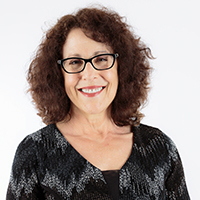About
Betsy Ross and Divorce Mediation Strategies
About Betsy Ross, Principal and Mediator
Mediator | Therapist | Educator
Betsy Ross is the Principal Divorce Mediator at Divorce Mediation Strategies. Ms. Ross is a professional mediator, divorce and co-parenting coach, and licensed psychotherapist with over three decades of experience helping individuals and families.
Ms. Ross also serves on the Board of Directors for the Massachusetts Collaborative Law Council and the Massachusetts Council on Family Mediation.
Ms. Ross has been interviewed on radio and television, and has lectured and brought seminars and workshops to numerous organizations and universities, including:
- MIT’s Family Resource Center
- Harvard Medical Center
- Harvard Law School
- Boston Center for Adult Education
- American Group Psychotherapy Association Conference
Mission & Purpose
At Divorce Mediation Strategies, our mission is to guide individuals and families through the complexities of divorce and co-parenting with compassion and expertise, fostering solutions that integrate legal, financial, and emotional well-being.
We provide a balanced approach to divorce and co-parent mediation that prioritizes healing, clarity, and a seamless transition to your next chapter of life.
Answers to your questions
Frequently Asked Questions
How does mediation work?
The mediator facilitates discussions, ensuring each client has ample opportunity to express their concerns, needs, and goals. Sessions focus on assisting clients to resolve disputes and disagreements with solutions that work for each of you and your family. The process is flexible and tailored to the couple/family’s unique circumstances.
Do both clients need to agree to mediation?
Yes, both spouses/co-parents must consent to participate. Mediation is a voluntary process, so it requires a mutual willingness to talk, listen, and negotiate.
Is the agreement legally binding?
Agreements made in mediation will be formalized into a legally binding document, which can be submitted to the court for approval.
What role does the mediator/co-mediator play?
A mediator is as a neutral facilitator, guiding discussions and helping all clients communicate effectively. They do not take sides or make decisions for the couple, co-parents, or the family.
How long does the mediation process usually take?
This depends on the complexity of the case and on how quickly or slowly clients can come to agreement. Some cases are resolved in three or four sessions, while others may take longer (eight to ten sessions).
Will you provide us with our final divorce agreement?
Yes. At the conclusion of the divorce mediation process, you will have all of the legal documents you need to file your paperwork with the court.
Is mediation confidential?
Yes, mediation is private and confidential. Discussions occur in a comfortable and confidential setting where clients can set their own pace for resolving all important issues.
Can mediation help us create a parenting plan?
Absolutely. We will help craft (or update) customized and practical parenting plans covering short or long-term schedules, co-parent communications, current and future parenting related decision-making, a plan for resolving future disagreements, and more.
Does mediation work for same-sex couples or non-traditional families?
Yes. Mediation is flexible, inclusive, and non-biased, addressing the unique dynamics of all family constellations.
What happens if mediation doesn’t work?
If mediation is unsuccessful in helping you resolve all of your disputes, you are encouraged to pursue other legal processes. The progress made in mediation can still inform your next steps, saving you both time and resources.